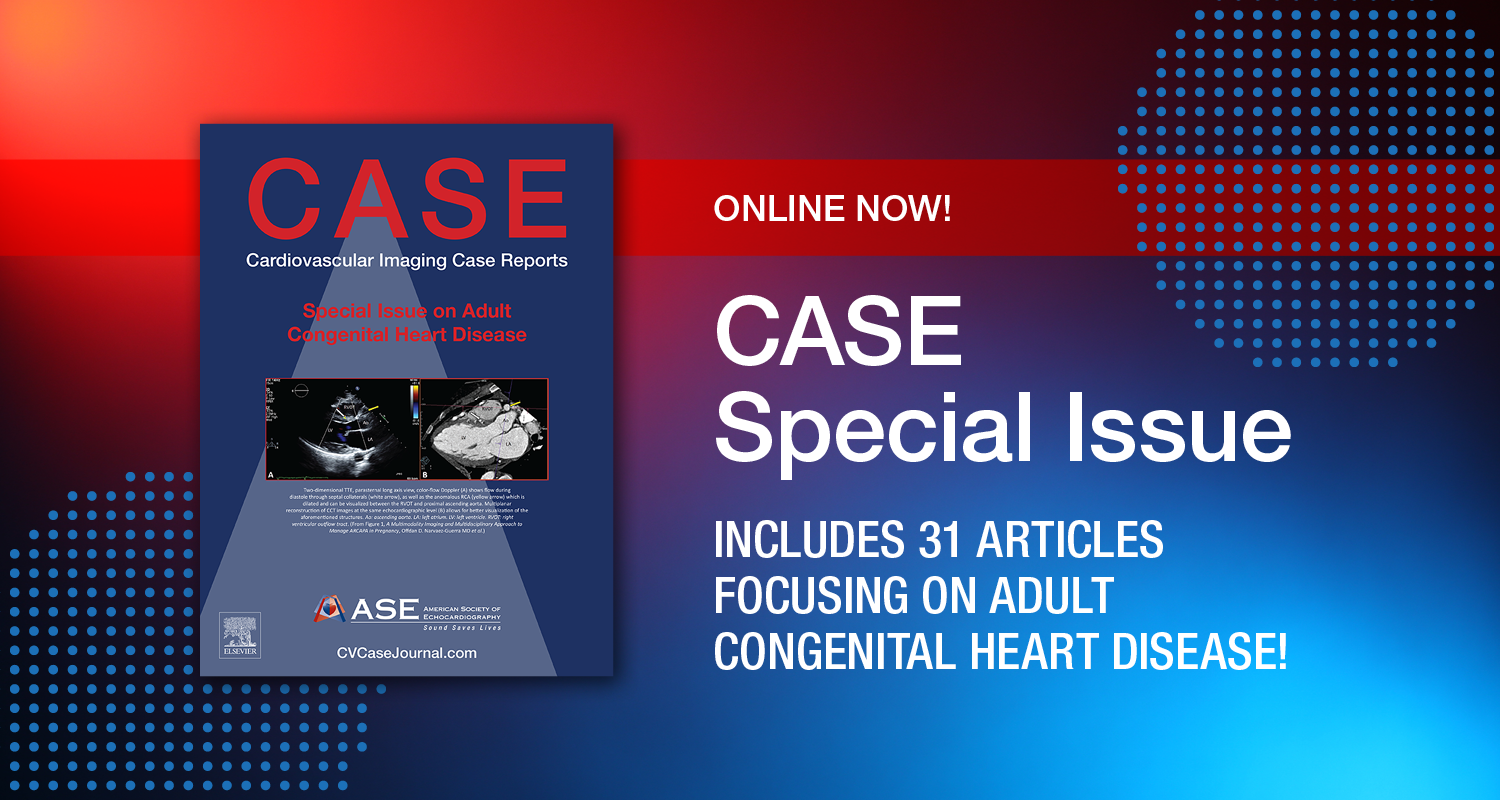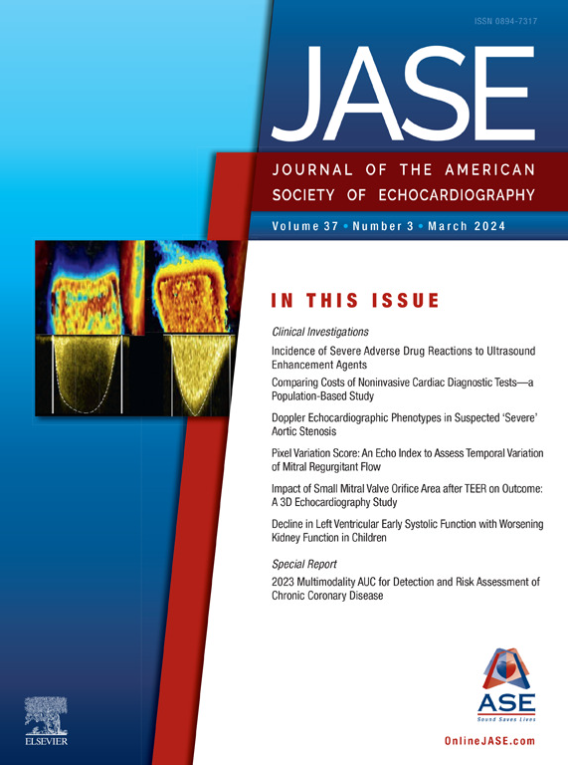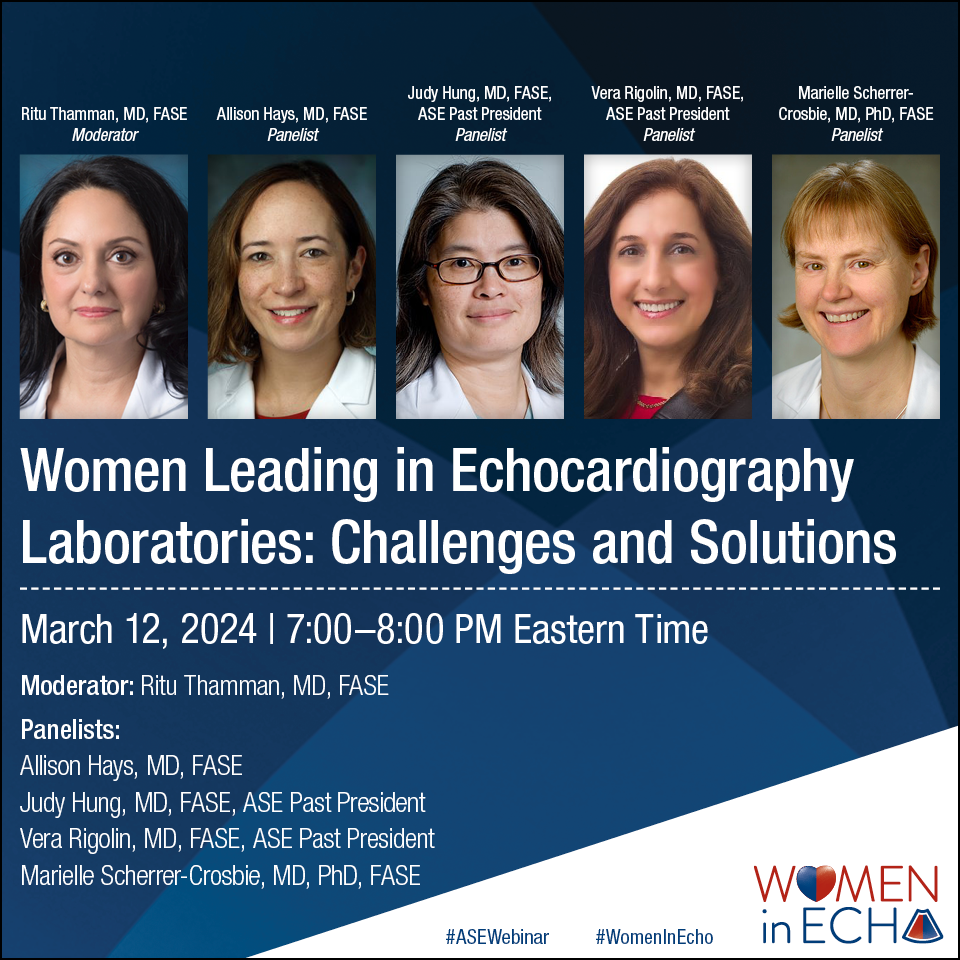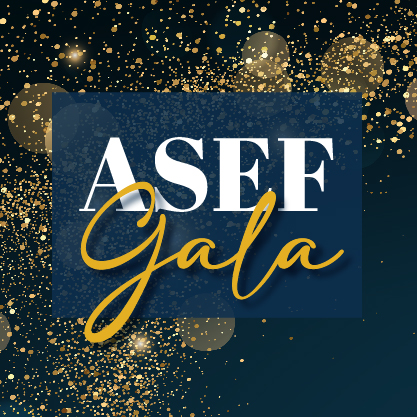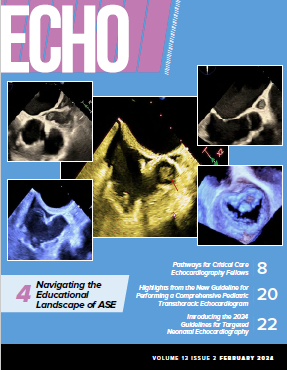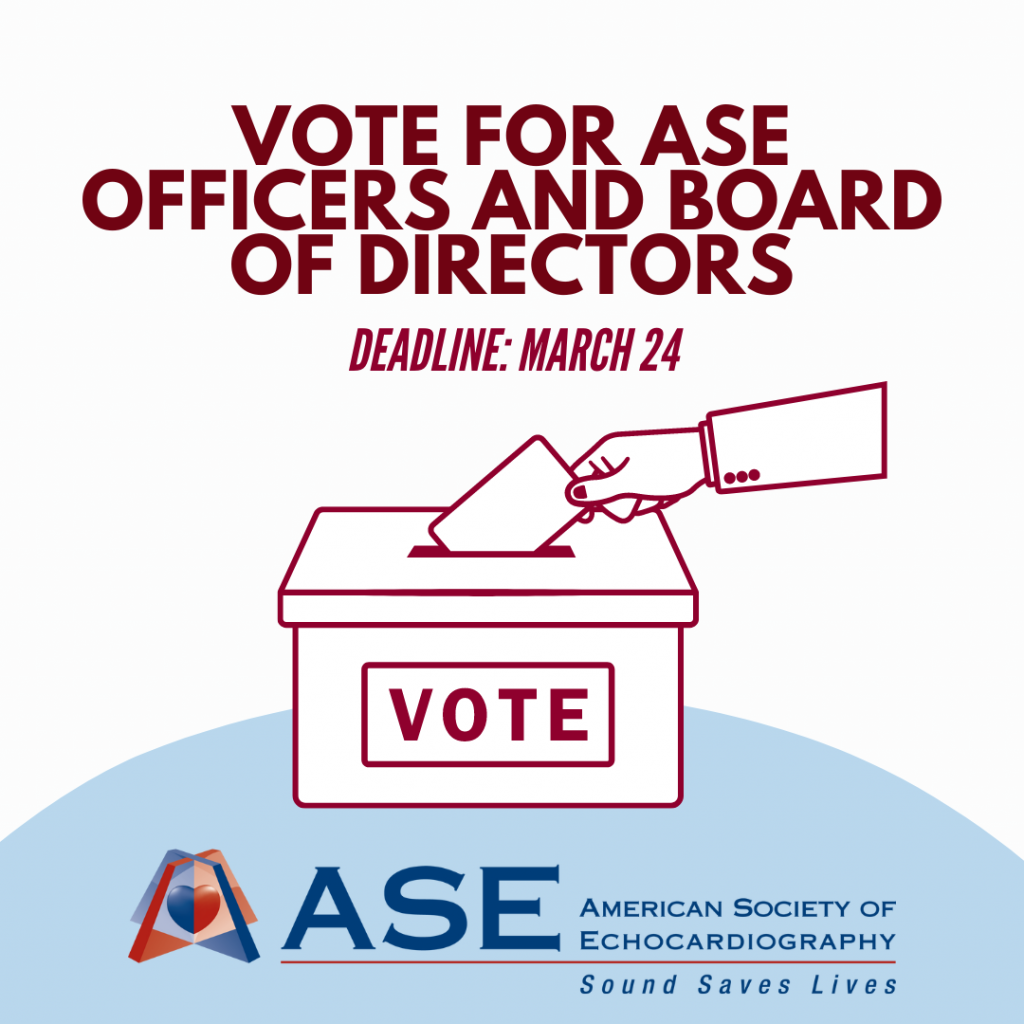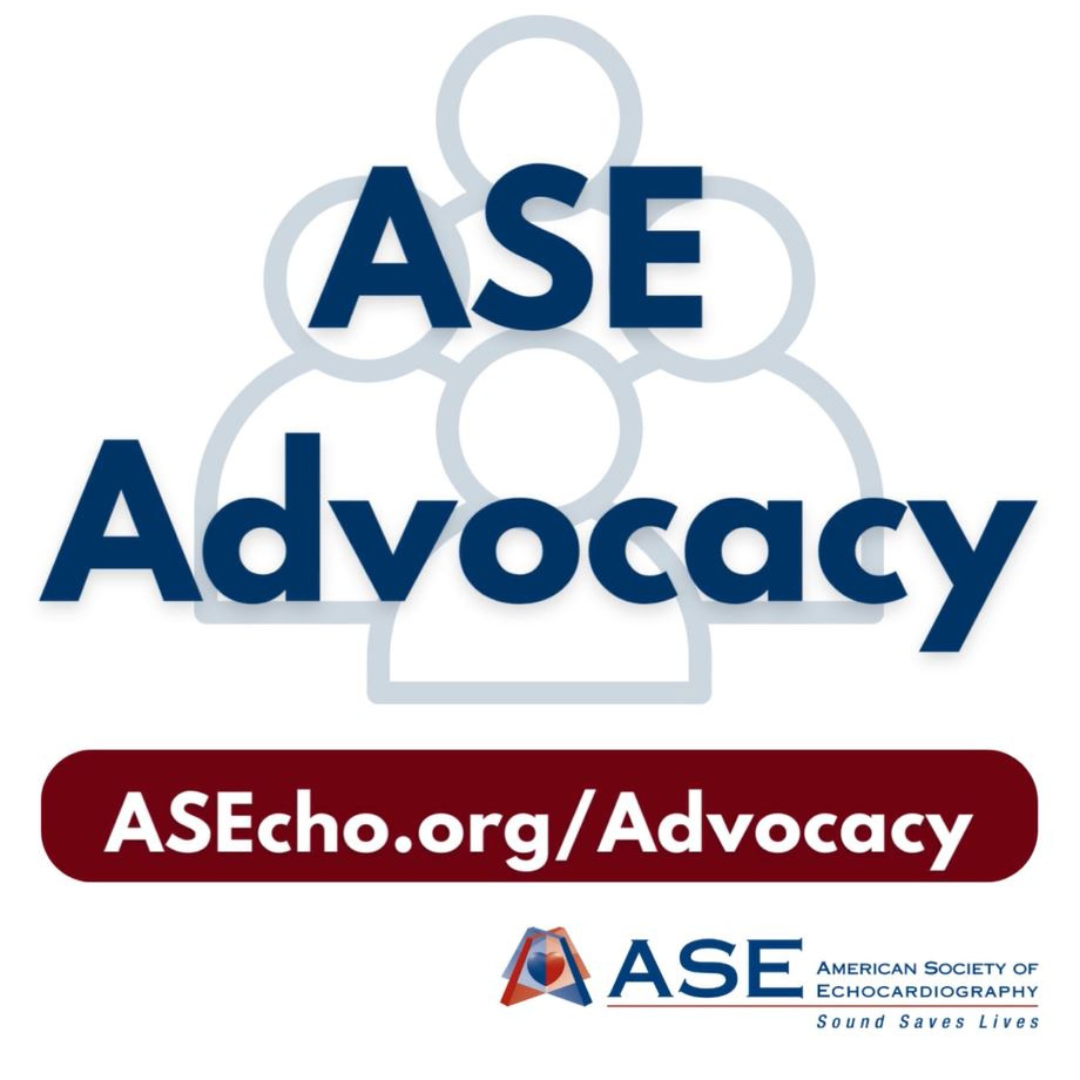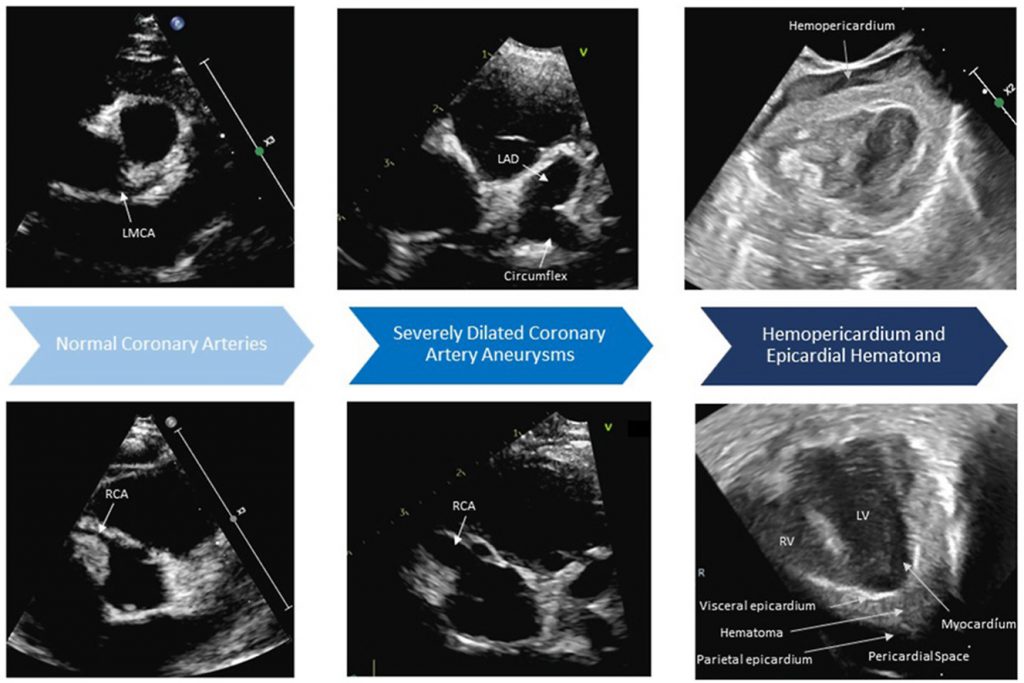The CASE editorial team is pleased to announce that the Special Issue on Adult Congenital Heart Disease, with current ASE President, and pediatric cardiologist, Benjamin W. Eidem, MD, FASE, as guest editor is available today! Vincent L. Sorrell, MD, FASE, CASE Editor-in-Chief, notes that, “Congenital heart disease is the most common birth defect diagnosed in nearly 1% of all U.S. births. Two-thirds of this population are now over 18 years old due to advances in medical and surgical care. In fact, every year there are nearly 20,000 new ACHD patients. I think you will agree when you read this collection of reports that there are many examples provided in one place to help educate your colleagues, sonographers, trainees, and students wherever you work. We are so thankful for the many authors who took the time to provide their case reports for us to learn from.”
This Special Issue provides over 30 high-quality cases to explore on common and uncommon imaging findings that encompass typical and atypical presentations of patients encountered in an adult echocardiography lab. The cases include descriptions of a wide range of congenital heart diseases, provide steps in image acquisition unique to the pathology and repair, describe the incremental role for collaborative multimodality imaging, and educate through patient examples using fascinating figures and videos you will undoubtedly keep on hand for future reference.
CASE is ASE’s open access journal allowing you to share these reports with colleagues across the globe.

